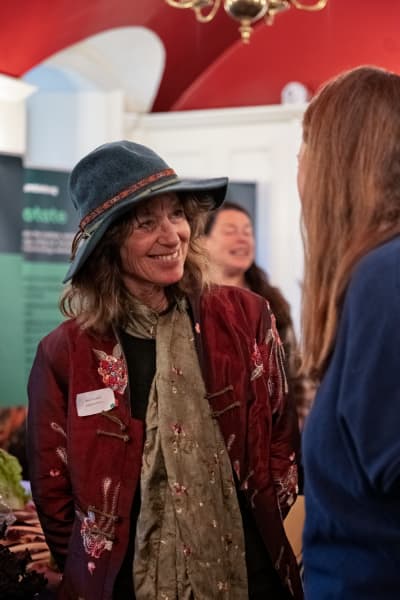Guest blog by Lucy Radford, Fundraising and Communications Officer at Sumatran Orang Utan Society

What is palm oil and why should I care about it?
With competing considerations from single-use plastic to food miles and animal welfare, it can be hard to keep up with all the information you need to keep your shopping basket ethical. In short, palm oil is an ingredient found in up to half of packaged food products on supermarket shelves, and the crop it comes from, the oil palm, is very productive.
While the growth in the palm oil industry over recent years has led to rainforest being cleared to make way for plantations, tackling this issue is not as simple as just boycotting anything with palm oil on its list of ingredients. The productivity of oil palms means that replacing them with another vegetable oil crop would mean at least ten times more land would be needed, and that means clearing more forests. Palm oil has also helped to lift millions of people out of poverty in the countries in which it’s grown.
What is a Sustainable Palm Oil City?
We have been working for many years to increase knowledge about sustainable palm oil. This means palm oil that is produced without causing harm to endangered species such as orangutans, or their forest homes.
When our friends at Chester Zoo came up with the concept of Sustainable Palm Oil Cities a few years ago, we thought it sounded like a fantastic way of engaging people in positive action for wildlife and rainforests. Having helped them kick off the first campaign in Chester in 2017 and celebrated their success at achieving Sustainable Palm Oil City status in March 2019, we’ve now launched the campaign in Oxford.
We are working with the hospitality and food service sector within the city of Oxford and a ten-mile radius to change the way the hospitality sector buys palm oil, with partners including:
- restaurants, cafes, hotels and fast food outlets;
- workplaces that offer staff catering services;
- schools, colleges and universities, council food outlets, and hospitals;
- manufacturers;
- visitor attractions and leisure facilities.
We already have several fantastic partners on board, and welcome anyone who’s interested to get in touch if you or your company would like to join that list. We have high hopes for Oxford as a community that can come together to bring about real change for threatened forests and wildlife.
Find out more about the campaign and how you can get involved as a business or as an individual: https://www.orangutans-sos.org/take-action/campaigns/sustainable-palm-oil-city-oxford/




